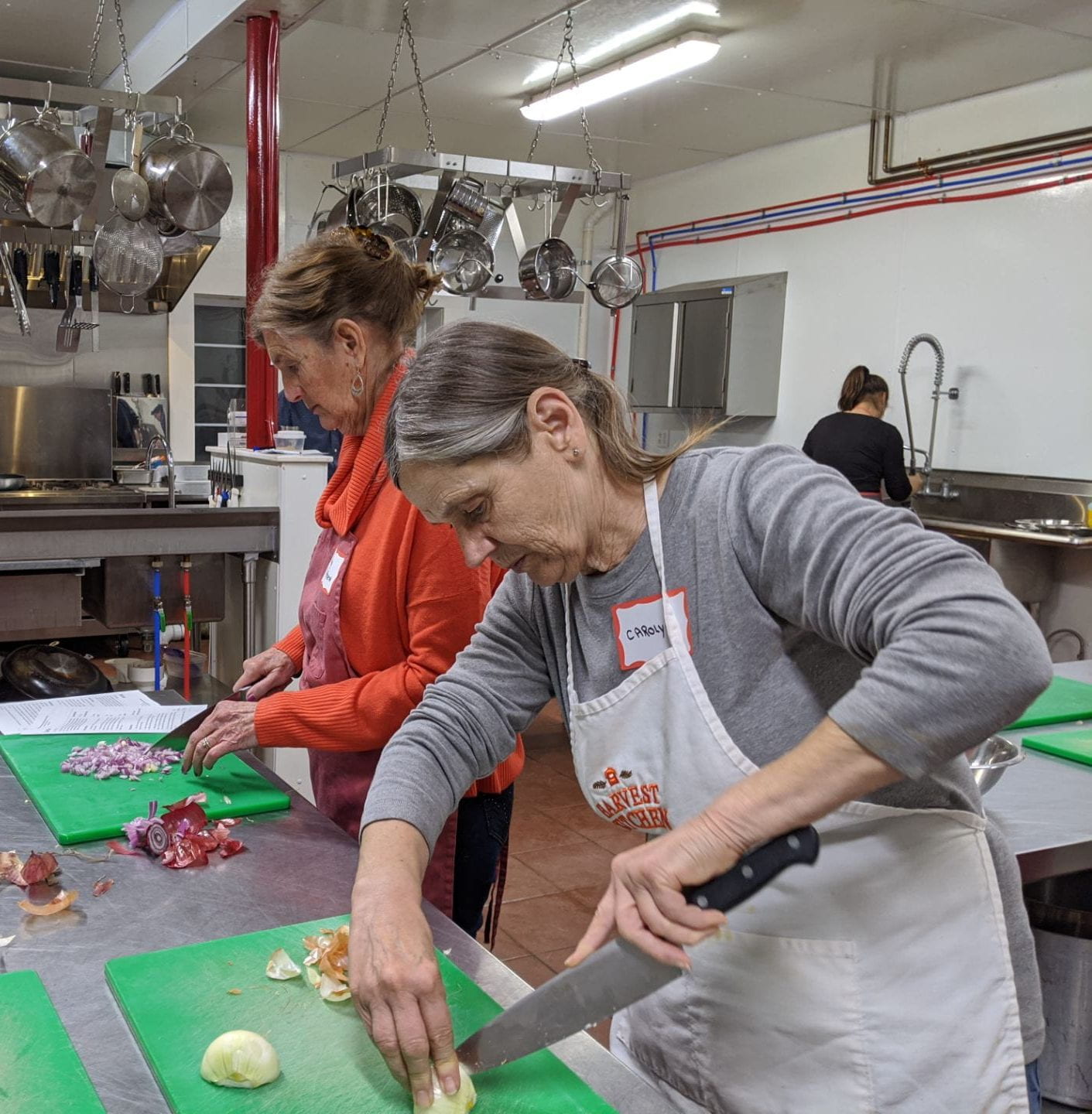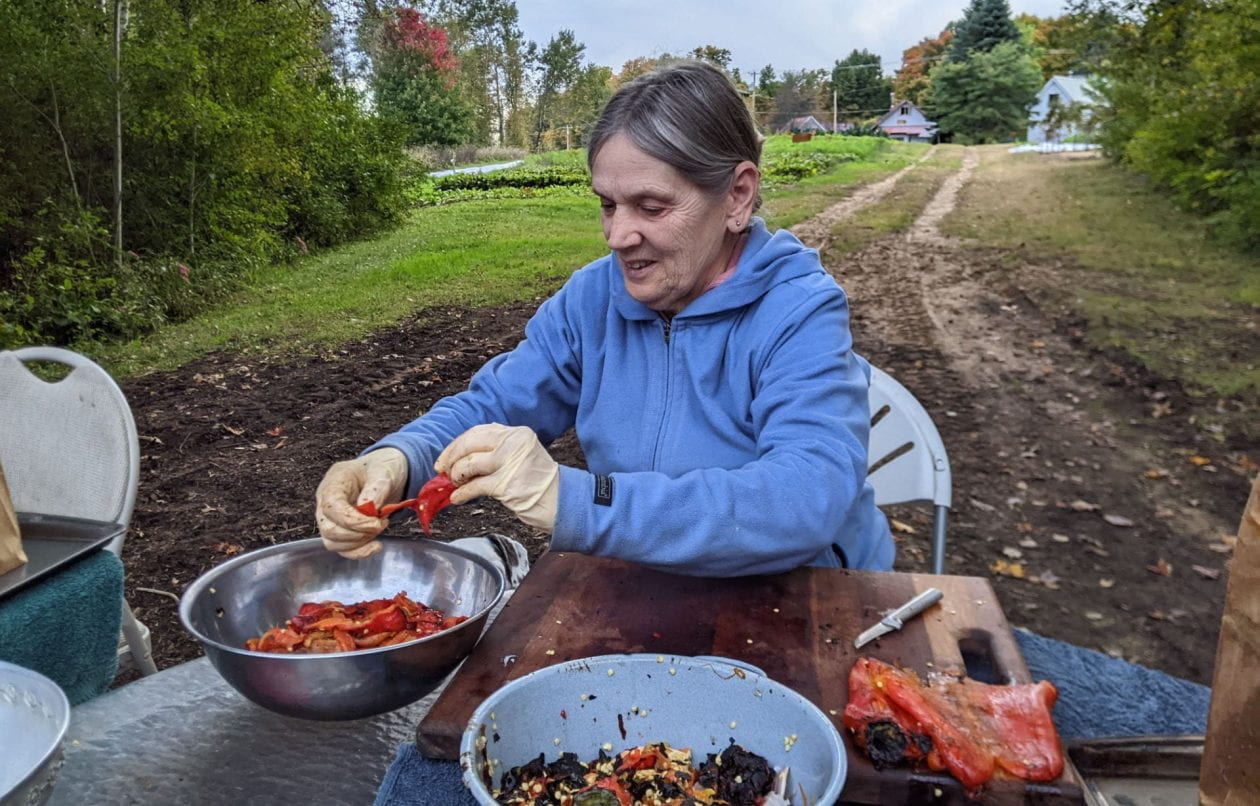With a new cohort of Master Gardener Volunteers ready to begin, we’d like to introduce them (AND YOU!) to the group of MGVs who have sustained this program for the last several years. Meet Carolyn Filippi!
What was your path to gardening?
I grew up in a mid-sized city with virtually no understanding of growing plants. In my high school years my mother had a small garden with tomatoes and peppers each summer but I paid little attention except to pick the fruit. In the early ‘70s I moved from the city to the country to get “back to the land” like many others of my generation. I began farming immediately to provide as much of our food as possible. I remember standing in the garden that first spring holding Rodales’ Organic Gardening book, hoe in hand, reading about how to plant potatoes. I used that book a LOT that first season!
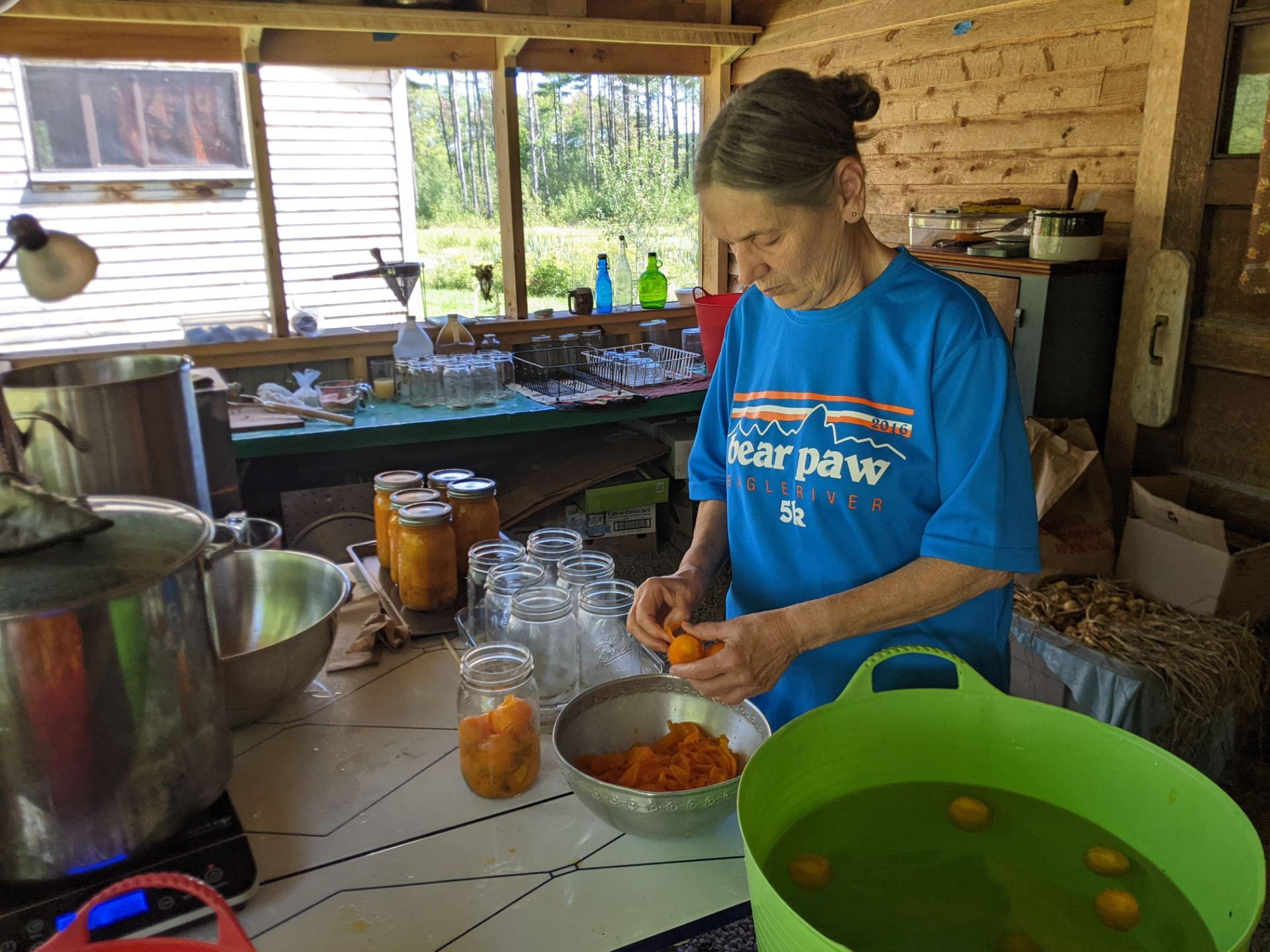
What benefits do you gain from gardening?
There are so many benefits! I love working outdoors. Gardening is great exercise, not just physically but mentally. It’s stimulating to brainstorm and plan new projects, then execute those ideas and solve all the issues that invariably arise throughout the growing season. The unique nature of each season and the sheer number of plants and living creatures in the ecosystem means there’s an endless opportunity for learning.
Gardening also provides a time to be present and contemplative. It’s an opportunity to stop and smell the roses- and then check them for insects, new buds, adequate water, etc.! The garden brings me peace. And the icing on the cake is enjoying the increased wildlife, especially the birds and butterflies.
Why did you want to become a Master Gardener Volunteer?
I was looking for a new way to connect with my community. By becoming a Master Gardener Volunteer I could help others learn to garden or find answers to perplexing problems and I was eager to learn from the experience of other volunteers.
In what ways do you serve as a MGV?
I’m a behind-the-scenes type of person so I look for ways to provide services while remaining in the shadows so to speak. I write articles for the Fruition blog, manage the gardening section of the CCE website, and grow plant seedlings for the Seed-to-Supper program. In recent years, I have also stepped out of my comfort zone to be a Growline Moderator, teach in the Seed to Supper program, and occasionally table at CCE events.
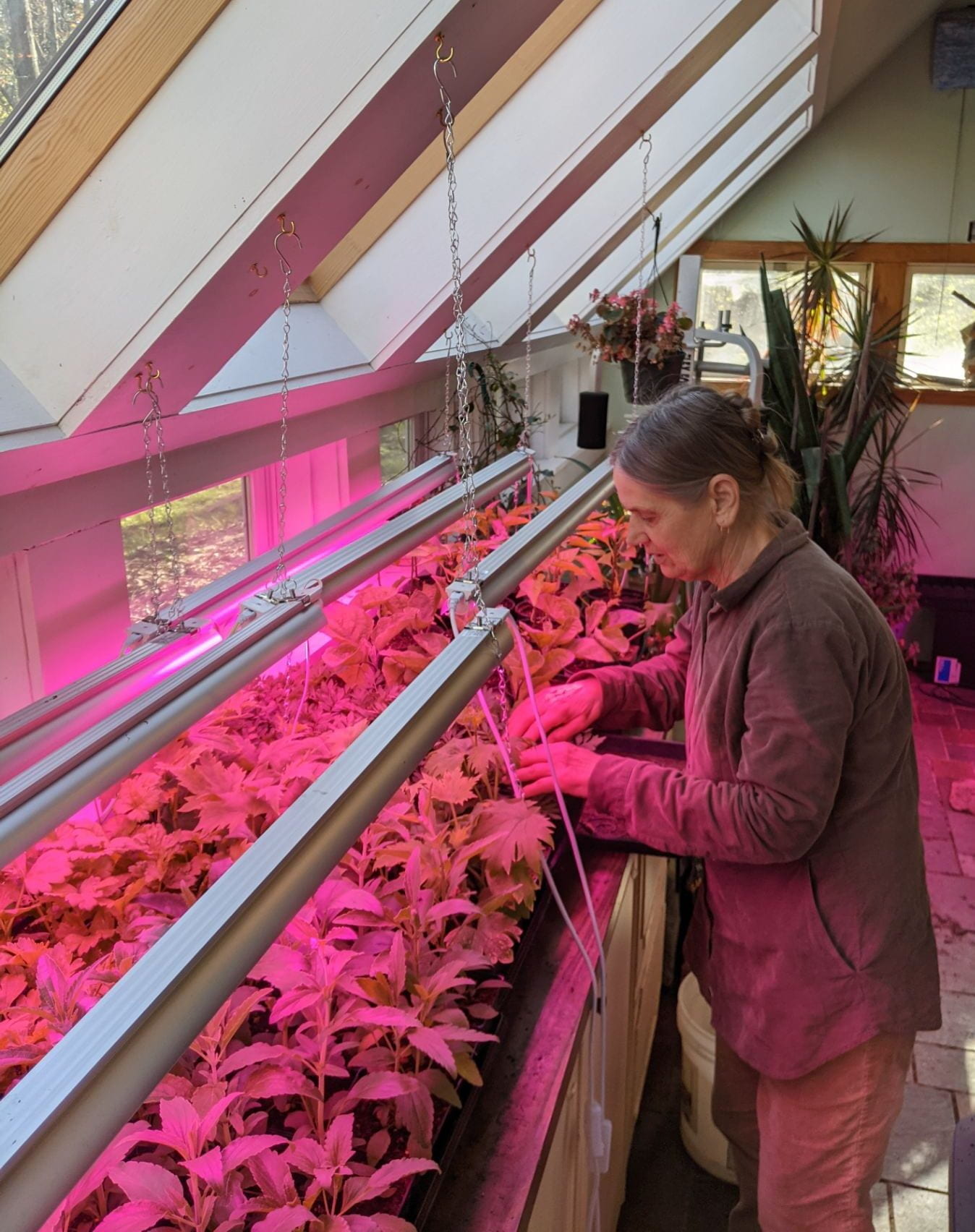
What do you grow and what are your specialties in the garden?
For decades, I focused on vegetables and a few fruits. I grew all the usual vegetables but especially enjoyed pushing the envelope by trying unusual varieties or veggies that were marginal for the growing zone where I lived. I’ve downsized the vegetable garden now and have recently focused more on flowers, herbs and a few small fruits. During the winter months I enjoy propagating house plants and growing microgreens.
What are you learning about now in the gardening realm, and what do you want to learn more about?
I’m currently learning more about native plants. I’ve decided to replace some of my ornamental perennial flowers with native species. I like the idea of enhancing the natural habitat of local wildlife. Organisms in an ecosystem depend on each other for survival and I believe native plants play a vital role in providing food and shelter for wildlife and insects.
I’ve also begun to experiment with fall and winter sowing. I’m using fall sowing for those flower seeds that need cold stratification or that self-sow in our climate. For winter sowing I plant both flower and vegetable seeds in little mini “greenhouses” in the dead of winter. This method is not meant to provide earlier seedlings but rather to encourage vigorous seedlings and eliminate the need for hardening off, which is otherwise a necessity for the seedlings I start indoors. Last year, my first winter sown crops were about 50% successful so I look forward to learning from some of my mistakes and having greater success this year.
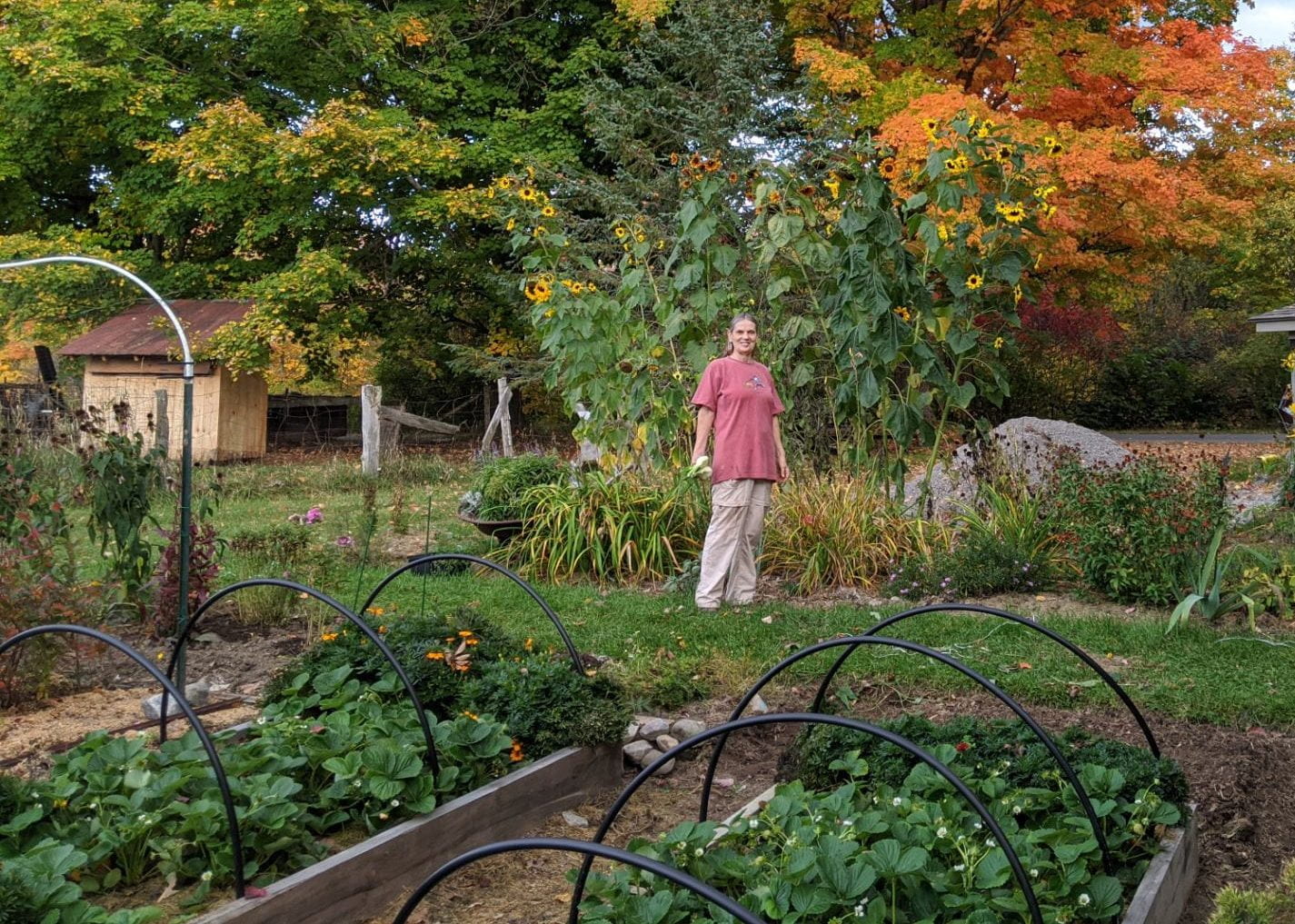
Working as a volunteer on the CCE Growline has given me the opportunity to learn aspects of gardening and landscaping that I know little about. Questions on a wide range of topics affords me the opportunity to gather information from many sources. At times, the best leads come from conversations with my fellow Master Gardeners and in other instances I dig into the research. For example, now I know a whole lot more about beneficial nematodes than I ever would have had the curiosity to investigate on my own!
Creativity in the kitchen helps keep the spark in my vegetable and herb gardening. I enjoy cooking and food preservation. Motivated by a desire to give handmade food gifts, I’ve dabbled in infused vinegars, flavored salts, a variety of extracts beyond vanilla, my own herb blends for seasoning, and syrups to freshen up sparkling water. It’s fun to preserve unusual jams and jellies, to ferment or pickle more than just cucumbers or cabbage, and dehydrate all manner of fruits and vegetables to make snacks or use in meal preparation. You don’t need to be a gardener to experiment in the kitchen but with fresh, delicious produce and herbs readily available the fruits of your culinary labors are so satisfying!
